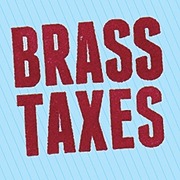Additional Common Questions
How does living or working abroad impact my taxes?
This is a huge topic! We can't get into every situation here, so below are some basic ideas and an overview of what we need from you to file your taxes if you live and/or work abroad.
Updated 4 days ago
Basic Concepts to Understand
If you're a US citizen or resident, you should generally assume that the US federal government will want to know about all of your income, no matter where in the world it was earned or where you're living. And they'll generally want to know you paid taxes on that worldwide income, either to the US or another country that they have a tax treaty with.
Because the US has tax treaties with many countries around the world, it's possible to avoid being double-taxed; i.e., paying taxes on the same income to both the US and another country.
You are responsible for figuring out if you're subject to taxes in the non-US country where you are living/working. Seek professional tax help from those who work with expats in the country where you are living. We'll be able to take care of the US side of things.
Tax rates in many countries are higher than in the US, so don't assume that you'll be able to reduce your tax bill by living abroad.
You may have to file tax returns in the US and the country where you're living.
Generally speaking, we usually end up having to pay taxes to the country we were in when we performed the work that earned us the money. So if you live in the UK for the whole year, even if you're earning from US sources, you'll likely be subject to UK taxes. (Again, this is a generalization, and you should speak to us about the US part of things, as well as consulting an expert in the country where you're living).
Depending on how much time you spend overseas, you may not have to pay state taxes in the US, though not all states make it easy to change or terminate your residency. Some expats change their state residence before leaving the US to a state with more favorable rules.
Things We'll Need to File Your Taxes
Breakdown of what income was earned where
Let's say, for instance, you spent 3 months of the year in the US and the rest of the year in Amsterdam. Keep a record of what money you earned in those months in the US (along with the relevant business expenses), and what money you earned/spent while in Amsterdam.
Dates of travel
Even if you live all year overseas, there's a good chance that you came back to the US at least once. In order to figure out what credits/exclusions you may qualify for, we need to know the exact days you came and went from the US.
If you have to pay taxes to a non-US country
We'll need to have a copy of your tax return from that country
Keep in mind that many non-US countries have tax years that do not follow the calendar year, so you may need to file an extension to give yourself more time to get the paperwork together.
We may also need you to provide a letter or additional info to confirm your foreign tax filings.
If you have money in foreign accounts totaling an equivalent of $10,000 or more
We'll need to know information like the bank name, account number, and highest balance during the year in order to file an FBAR for you.
If the total across your accounts exceeds $50,000, we will likely need additional information.
Again, these are just some basics, and every situation is a little different. We'll get into the specifics of your situation during your tax appointment.

